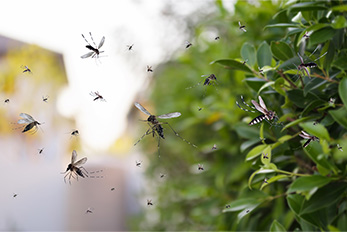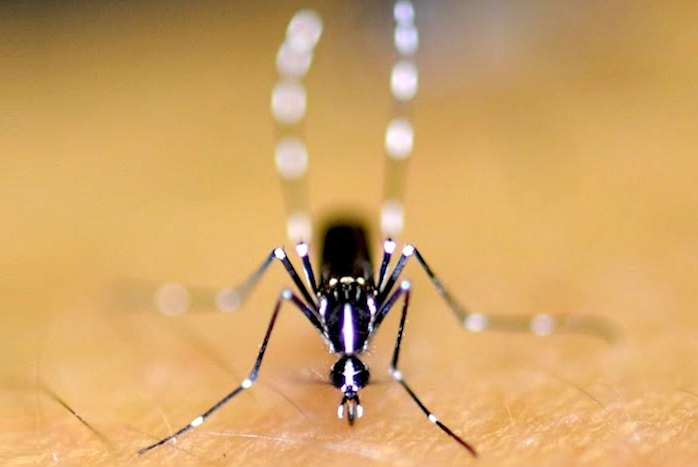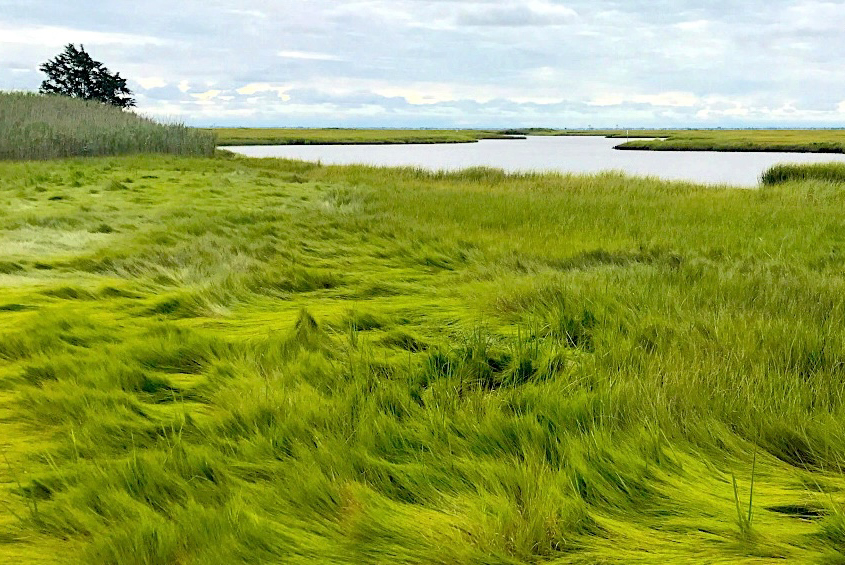Main Content
NEW COURSE! Learn about the biology and ecology of mosquitoes, as well as how to recognize their habitats in NJ
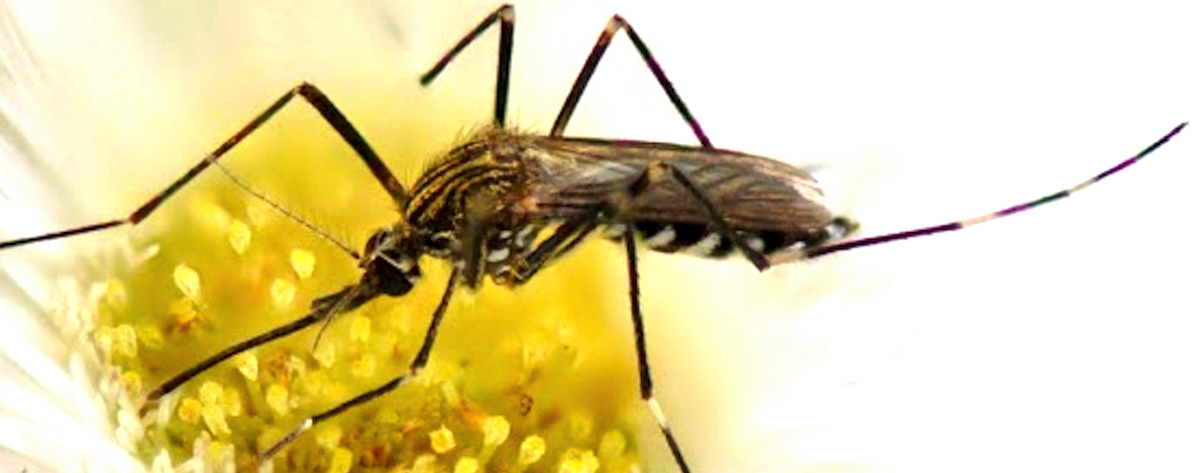
Course Status Notice – Not Scheduled
We do not have an offering of this course scheduled at this time. Please join our email list to be notified when the next offering is scheduled!
Jump to: Overview | Instructor | Reviews | CE Credits | Contact Us | Related Courses | Join Email List
Course Details
Course Name: Mosquito Biology, Ecology, and Habitat Recognition
Course Code: AE0611WA25
Date of Most Recent Offering: January 6 – February 14, 2025
Course Overview
![]() This class is part of the Professional Mosquito Management Certificate Program.
This class is part of the Professional Mosquito Management Certificate Program.
This comprehensive course is designed to provide participants with a deep understanding of the biology and ecology of mosquitoes, as well as the skills to identify and manage their habitats. Mosquitoes play a crucial role in public health, and understanding their biology and ecology is essential for effective mosquito control and disease prevention. The habitat recognition portion of the course will provide participants with hands-on experience in identifying and monitoring the primary types of mosquito habitats in the state of New Jersey. The dates for those modules and site visits will be determined based on-site availability and attendee schedules. This course provides a unique opportunity for participants to gain practical skills and knowledge essential for effective mosquito habitat management in New Jersey, combining scientific understanding with real-world applications.
Modules
Module 1: Introduction to Mosquitoes
Lesson 1: Overview; Importance in Public Health; Diversity of Mosquito Species
Lesson 2: Mosquito Life Cycle; Egg, Larva, Pupa, Adult; Factors Influencing Development
Module 2: Mosquito Biology
Lesson 3: Anatomy and Physiology of Mosquitoes; Structure of Larval an Adult Mosquitoes; Feeding Mechanisms
Lesson 4: Reproduction and Behavior; Mating Habits; Blood-Feeding Behavior
Module 3: Mosquito Ecology
Lesson 5: Natural vs. Artificial Habitats; Water Sources and Breeding Sites
Lesson 6: Environmental Factors Affecting Mosquito Populations; Temperature, Humidity, and Light; Impact of Urbanization
Module 4: Mosquito-Borne Diseases
Lesson 7: Diseases Transmitted by Mosquitoes; Malaria, Dengue, Zika, West Nile Virus, etc.; Global Distribution of Mosquito-Borne Diseases
Lesson 8: Mosquito-borne diseases in NJ: past, present, and future
Module 5: Mosquito Habitats across NJ
Lesson 9: Identifying Mosquito Habitats; Field Techniques for Habitat Identification; Use of Technology in Surveillance
Module 6: History and Organization of Mosquito Control in NJ
Lesson 10: The early days; Title 26; Emerging Issues in Mosquito Control; Climate Change and Mosquito-Borne Diseases; Technological Advances and Innovations
Field Trips
Field Trip 1: Snow Pool Mosquitoes – Sussex County, NJ (Early Spring)
Explore the unique habitats created by melting snow and identify mosquito larvae. Discuss the seasonal dynamics of snow pool mosquitoes and their relevance to mosquito management.
Field Trip 2: Urban Mosquitoes – Union County, NJ
Visit parks, abandoned lots, underground subway sites, associated crypts and green spaces. Use field tools to identify and collect mosquito larvae in urban environments. Discuss the challenges and opportunities for mosquito control in densely populated areas.
Field Trip 3: Salt Marsh Mosquitoes – Middlesex County, NJ
Conduct mosquito larval and pupal sampling in marsh areas. Discuss the unique ecological characteristics of salt marsh mosquitoes and potential management strategies.
Field Trip 4: Cedar Swamps – Location TBD
Identify and collect mosquito larvae that develop in these habitats Discuss the ecological importance of cedar swamps and effective mosquito control measures.
Field Trip 5: Rural, Agricultural Landscapes – Location TBD
Collect mosquito larvae from agricultural-related water sources. Discuss the balance between pest control and environmental conservation in agricultural areas.
Course Format
Each week, asynchronous course materials will be made available on Monday at 9:00 AM. These materials will include four to eight presentations, each lasting 10 to 15 minutes, followed by multiple-choice quizzes. Participants will review the presentations at their own pace and complete the quizzes.
Additionally, a one-hour synchronous instructor-led Zoom session will be held each week to discuss the material and address any questions or challenges. Two options for the live session will be offered: Thursday morning (9:00 – 10:00 am) or Thursday evening (6:00 – 7:00 pm). Participants must register for one of these sessions no later than 6:00 pm on Wednesday of each week.
At the end of the course, participants will be evaluated with a final exam during the Week 6 Thursday (cameras must remain on).
Who Should Attend?
Mosquito Biology, Ecology, and Habitat Recognition is recommended for professionals involved in mosquito research, identification, surveillance, and abatement, including:
- Biologists
- Entomologists
- Environmental Health Specialists
- Mosquito Control Commission Staff
- Mosquito Inspectors
- Mosquito Researchers
- Mosquito Technicians
- Pesticide Applicators/Operators
- Public Health Personnel
- Wetland Specialists
Meet Your Instructor
Dr. Dina Fonseca

Dr. Dina Fonseca is a tenured professor and the current chair of the department of Entomology at Rutgers University School of Environmental and Biological Sciences and a member of the graduate programs in Entomology, Ecology and Evolution, and Microbiology. She is also a member of the Rutgers Global Health Institute, the Rutgers Climate Institute, the Rutgers Institute for Infectious and Inflammatory Diseases, and the NJ One Health Steering Committee and the NE One Health Regional Consortium developing strategies to reach underserved communities with Public Health training and information. She works on the ecology and control of invasive mosquitoes and ticks and the parasite/pathogens they transmit and was a member of the 2022 National Tick-borne Diseases Working group sub-committee on Tick Ecology, Personal Protection and Control. In addition, she is Director of the Rutgers Center for Vector Biology, a program that provides accreditation, continuing education and broadly supports the extended NJ Mosquito Control community. She also works with residential communities to develop proactive strategies for urban vector surveillance and control, through Citizen science projects – Community AcTS (Action Through Science) and NJTicks4Science! aimed at empowering communities to organize and minimize the proliferation of invasive mosquitoes and limit exposure to ticks and disease agents.
Continuing Education Credits
The most recent offering of Mosquito Biology, Ecology, and Habitat Recognition was approved for 3.6 Rutgers CEUs (36 contact hours) as well as the following credits from professional organizations. We will reapply for similar credits the next time the course runs, but we cannot guarantee credit approval for future offerings.
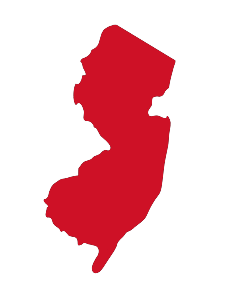 New Jersey
New Jersey
NJ Health Officers and Registered Environmental Health Specialists (HO/REHS): Rutgers University, NJAES, Office of Continuing Professional Education has been approved by the New Jersey Department of Health as a provider of NJ Public Health Continuing Education Contact Hours (CEs). A total of 22.50 CEs will be awarded for attending all 6 days (11.25 CEs for attending three days).
NJ / CT Pesticide Applicators: 4 units in 8A, 8B, and 8C
Program Questions? We’re Here to Help!
If you have any questions about Mosquito Biology, Ecology, and Habitat Recognition, please don’t hesitate to reach out to us.

Senior Program Coordinator: Pamela Springard-Mayer
848-932-7463
pspring@rutgers.edu

Administrative Assistant: Claudine Oleskin
848-932-7204
coleskin@njaes.rutgers.edu
